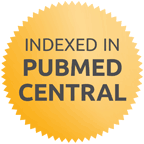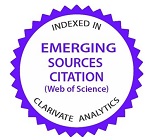Abstract
The World Health Organization plan for a Decade of Healthy Ageing 2020-2030 has established some priorities in the field of palliative and end-of-life care. It states that “people require non-discriminatory access to good-quality palliative and end-of-life care” and recommends the “implementation of strategies for the provision of information, training, respite and support for informal caregivers”. The priorities described are in line with the home care services that National Tumor Assistance (ANT) Foundation has been providing in Italy. This 5-years investigation was designed to measure caregivers’ satisfaction and determine what types of support services are associated with greater satisfaction. 5.441 family caregivers filled out autonomously a 6-item questionnaire at the end of home care assistance, focusing on the level of satisfaction with the social and health services received. The overall data indicate a high satisfaction rate for the home care assistance received. In particular, participants rate positively the assistance provided by healthcare professionals (physicians, nurses and psychologists). The most appreciated aspects of assistance are those ensuring a global management of patients and their families, whereas an area of deficiency emerged was the continuity of care, suggesting the importance to implement the networks between the health care facilities and home care services. The present investigation constitutes a mean to highlight the aspects associated with greater satisfaction and the ones perceived as less satisfactory by caregivers. Moreover, this research constitutes a crucial instrument to improve home care assistance provided by ANT ensuring the best quality of life for both patients and their families.
Recommended Citation
Zavagli, Veronica
(2020)
"The ANT Home Care Model in Palliative and End-of-Life Care. An Investigation on Family Caregivers’ Satisfaction with the Services Provided.,"
Translational Medicine @ UniSa: Vol. 23
:
Iss.
4
, Article 22.
Available at:
https://doi.org/10.37825/2239-9747.1022
Creative Commons License

This work is licensed under a Creative Commons Attribution 4.0 License.
Included in
Health Communication Commons, Life Sciences Commons, Medicine and Health Sciences Commons




